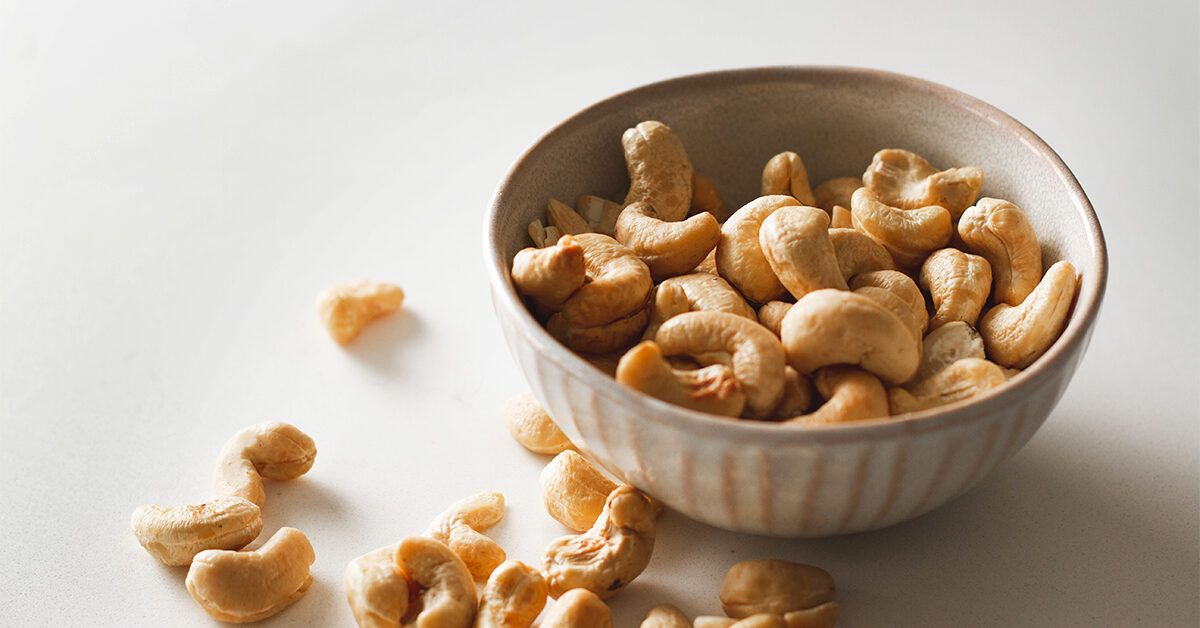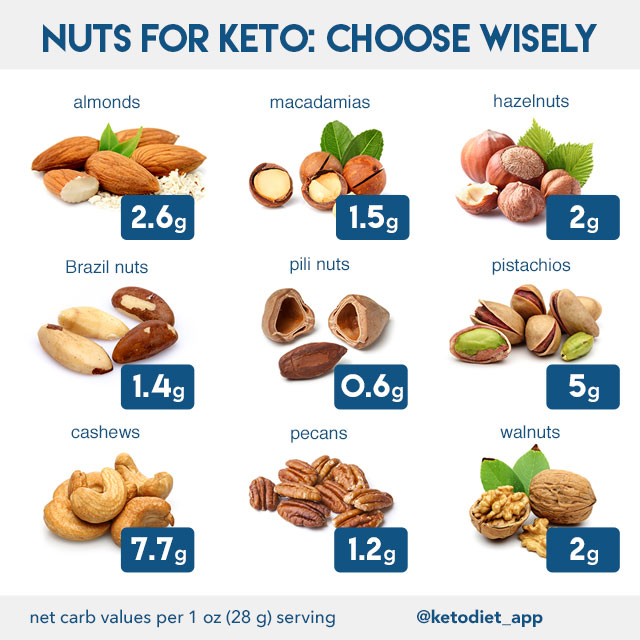Surprisingly, many keto dieters discover that their favorite nuts aren’t always keto-friendly. Cashews, for example, are often consumed without much thought, yet they pack a significant carbohydrate punch. This can be a critical consideration for those meticulously tracking their daily carb intake.
Historically, cashews were cherished for their creamy texture and rich flavor, making them popular in a variety of dishes. However, a standard serving of cashews contains about 9 grams of net carbs, posing a challenge for keto adherents aiming to stay within a strict 20-50 grams of carbs per day. Therefore, moderation is key if one wishes to incorporate cashews into a ketogenic meal plan.

Unraveling the Keto Diet
The keto diet, short for ketogenic diet, focuses on reducing carb intake, replacing it with fats. This shift puts your body into a state called ketosis. During ketosis, the body burns fat for energy instead of carbs.
Essentially, the keto diet requires you to consume foods that are high in fat but low in carbs. This includes items like avocados, cheese, and certain oils. The goal is to make up at least 70% of your daily calories from fat.
Maintaining this balance is crucial to staying in ketosis. Even a small increase in carbs can kick you out of this state. Therefore, tracking your daily intake is highly recommended.
The benefits of the keto diet can be substantial. Studies show it helps with weight loss, improved energy levels, and mental clarity. However, it’s essential to adhere strictly to the diet guidelines to enjoy these benefits.
Understanding Ketosis
Ketosis occurs when your body starts breaking down fats into ketones for fuel. This can happen after just a few days of cutting down on carbs. Entering ketosis means your body has become a fat-burning machine.
It’s vital to monitor the signs of ketosis. These can include increased thirst, dry mouth, and a distinct change in breath odor. Using ketosis test strips can help confirm if you are in ketosis.
Staying in ketosis requires vigilance in your diet choices. Foods like bread, pasta, and sugary drinks should be strictly avoided. Instead, prioritize healthy fats and protein-rich foods.
The Nutritional Profile of Cashews
Cashews are a popular nut known for their creamy texture and rich flavor. They are not only delicious but also packed with nutrients. Understanding their nutritional profile is essential for anyone on a diet.
Macronutrients in Cashews
Cashews are rich in both fats and proteins. One ounce of cashews contains approximately 157 calories. They provide about 12 grams of fat and 5 grams of protein per serving.
However, they are also relatively high in carbs compared to other nuts. A serving has around 9 grams of carbohydrates. This high carb content can be problematic for keto dieters.
Although cashews offer essential nutrients, moderation is key. Consuming them in limited amounts can help you stay within your daily carb limits. This is crucial to maintaining ketosis on a ketogenic diet.
Essential Vitamins and Minerals
Cashews are a powerhouse of essential vitamins and minerals. They are particularly high in magnesium, which supports muscle and nerve function. Vitamin K, found in cashews, aids in blood clotting and bone health.
- Magnesium: Enhances muscle and nerve function
- Phosphorus: Vital for healthy bones and teeth
- Iron: Crucial for transporting oxygen in the blood
Copper, another significant mineral in cashews, helps with iron absorption and the formation of red blood cells. These nutrients make cashews beneficial for overall health. However, the carb content remains a concern for keto followers.
Potential Health Benefits
Aside from being nutrient-dense, cashews also offer various health benefits. Studies suggest that cashews can improve heart health and support weight management. They contain antioxidants that help protect the body from damage caused by free radicals.
Moreover, cashews are known to promote bone and joint health. Regular consumption can enhance your overall sense of well-being. Nevertheless, those on a ketogenic diet must keep an eye on their carb intake when eating cashews.
Given their high fat and protein content, cashews can be a valuable addition to many diets. Balancing these benefits with the carb content can help you make informed dietary choices. Always consider portion sizes to stay on track with your nutritional goals.
Can You Eat Cashews on a Keto Diet?
Cashews, loved for their creamy texture, are often packed with nutrients. However, cashews come with a hidden challenge for keto dieters. They contain about 9 grams of carbs per ounce, which can significantly impact your carb limit.
Staying in ketosis requires strict control over your carb intake. If you choose to eat cashews, moderation is vital. Small portions can let you enjoy the flavor without kicking you out of ketosis.
Keto-friendly alternatives might be a better choice. Nuts like macadamias and pecans have a much lower carb content. They offer similar nutritional benefits without risking your keto state.
Incorporating cashews in a ketogenic diet can still be feasible. Focus on eating tiny amounts and always factor them into your daily carb count. Remember, achieving and maintaining ketosis requires careful planning.
Healthy Nuts for the Keto Diet
When it comes to the keto diet, choosing the right nuts can make a big difference. Some nuts have lower carb content, making them ideal for staying in ketosis. These nuts can be both nutritious and satisfying.
Macadamia nuts are a top choice for keto dieters. They have high fat and very low carb content. This makes them perfect for maintaining ketosis throughout your diet.
Pecans are another excellent option. They offer a rich source of healthy fats and minimal carbs. In fact, they have the lowest carb content among commonly consumed nuts.
Almonds can also fit into a keto diet when consumed in moderation. While slightly higher in carbs compared to macadamias and pecans, their nutritional benefits are noteworthy. They are rich in vitamins and essential minerals.
- Macadamia Nuts: High fat, low carbs
- Pecans: Lowest carb content
- Almonds: Nutrient-rich but consumed in moderation
Walnuts deserve mention for their omega-3 fatty acids. These nuts support heart health while fitting into a low-carb diet. Incorporating a variety of these nuts can make your keto diet enjoyable and nutritious.
Enjoying Cashews in Moderation on Keto
Even though cashews are higher in carbs, you can still enjoy them on a keto diet. The key is moderation. Eating small portions allows you to savor their rich flavor without consuming too many carbs.
One strategy is to use cashews as a garnish rather than a main snack. Sprinkle a few on top of your salad or keto-friendly yogurt. This way, you get the taste without going over your carb limit.
Tracking your daily carb intake is essential. Aim to keep your cashew consumption to about an ounce a day. This small portion helps you stay within your ketogenic goals.
- Use cashews as a garnish
- Measure portions carefully
- Track daily carb intake
Combining cashews with other low-carb nuts can also be useful. Mix them with pecans or macadamias to balance out the carbs. This mix provides variety and keeps your diet interesting.
Making Informed Diet Choices
Making informed diet choices is crucial for maintaining a healthy lifestyle. Understanding the nutritional content of food helps you make better decisions. This is especially important for diets like keto.
Reading food labels can provide valuable insights. Look for information about carbs, fats, and proteins. Knowing these details helps you stay within your dietary goals.
Consulting a nutritionist or dietitian can also be beneficial. They can offer personalized advice tailored to your specific needs. This guidance ensures you are getting the right nutrients while following your diet.
- Read food labels carefully
- Consult a healthcare professional
- Focus on nutrient-dense foods
Planning your meals in advance is another effective strategy. Meal prepping helps you control portion sizes and stick to your diet. It also saves time and reduces the temptation to choose unhealthy options.
Additionally, variety is key in any diet. Incorporate different types of foods to ensure you’re getting a range of nutrients. This helps keep your meals interesting and balanced.
Key Takeaways
- You can eat cashews on a keto diet.
- Cashews have about 9 grams of net carbs per ounce.
- Eating cashews in moderation is crucial to maintaining ketosis.
- Track your daily carb intake carefully if you include cashews.
- Balance cashew consumption with other low-carb foods.

Frequently Asked Questions
Cashews and the keto diet can be a confusing combination. Below are some answered questions to help you navigate this topic with ease.
1. How many cashews can I eat on a keto diet?
You can eat a small serving of cashews on a keto diet. Typically, this means around 10-15 cashews or about an ounce. This amount keeps your carb intake in check while allowing you to enjoy these delicious nuts.
It’s essential to measure your portions carefully to avoid exceeding your daily carb limit. Since cashews have around 9 grams of net carbs per ounce, moderation is key. Always tally up your carbs at the end of the day.
2. What are some low-carb alternatives to cashews for keto?
If you’re looking for lower-carb options, consider nuts like macadamias, pecans, and almonds. Macadamia nuts have very low carbs and high fat content, making them ideal for keto dieters.
Pecans also offer minimal carbs while delivering essential nutrients and fats. Almonds are slightly higher in carbs but still a good option if eaten in moderation. These alternatives can diversify your snack options without disrupting ketosis.
3. Are there any health benefits of eating cashews?
Absolutely! Cashews are rich in healthy fats, proteins, vitamins, and minerals like magnesium and copper. These nutrients support muscle function, bone health, and oxygen transport in the body.
The antioxidants found in cashews also protect the body from harmful free radicals. While their higher carb content may require cautious consumption on a keto diet, their nutritional value remains significant.
4. Is it possible to add cashew butter into a keto meal plan?
You can add cashew butter to your keto meal plan but do so sparingly due to its high carb content. A tablespoon of cashew butter typically contains around 5 grams of net carbs.
This means you need to watch other sources of carbs throughout the day if you indulge in it. Consider mixing it with lower-carb items like celery sticks or incorporating it into recipes where only a small amount is needed.
5. Can roasted or salted cashews still be considered for a keto diet?
Roasted and salted cashews can be included in moderate amounts on a keto diet as long as they’re unsweetened and free from additional ingredients like sugar or honey glaze that increase carb content significantly.
The roasting process doesn’t affect their carb count much but always check nutrition labels for hidden ingredients that might contain extra sugars or unwanted carbohydrates.

Conclusion
Navigating cashew consumption on a keto diet requires careful consideration. It’s crucial to balance their nutritional benefits with their relatively high carb content. Enjoying them in moderation can help maintain your ketosis while allowing you to savor their rich flavor.
By incorporating a variety of low-carb nuts and staying vigilant about portion sizes, you can diversify your diet without straying from keto guidelines. Making informed choices ensures you reap the benefits of a ketogenic lifestyle while still enjoying a delicious and varied diet.
